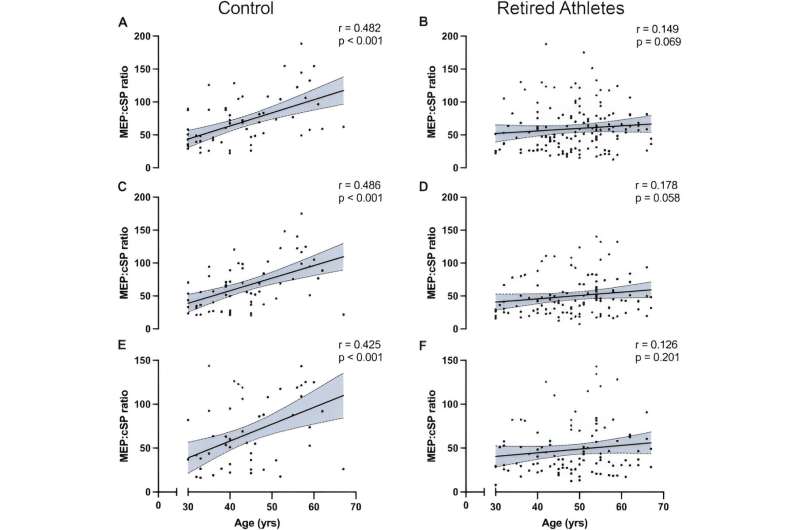This article has been reviewed according to Science X's editorial process and policies. Editors have highlighted the following attributes while ensuring the content's credibility:
fact-checked
trusted source
proofread
Potential test for early concussion-related injury

La Trobe University researchers have used a technique to look for early markers of neurological decline in both young and older retired contact sport athletes.
La Trobe University researchers have used a technique commonly used to detect early stages of dementia and Alzheimer's Disease, to look for early markers of neurological decline in both young and older retired contact sport athletes.
Using transcranial magnetic stimulation (TMS), the researchers found alterations in inhibitory brain activity in retired athletes, compared to non-athletes of the same age.
There are currently no diagnostic tests for long term brain injury as a result of repeated head knocks.
There are increasing concerns regarding the long-term neurophysiological impacts of head impacts in contact sports—with fears that concussion and repetitive sub-concussive impact increase the risk of neurological impairments and neurodegenerative disease.
Professor Alan Pearce, from the School of Allied Heath, Human Services and Sport, studied the use of TMS in 152 retired rugby union, rugby league, AFL, boxing, motor racing and BMX cycling athletes from 30 to 70 years of age.
TMS has shown promise as a technology that can predict Alzheimer's disease or frontotemporal dementia in its early stages. It is used, clinically, in other areas of neurological diagnosis including motor neuron disease, stroke and Parkinson's disease.
According to Professor Pearce, a definitive diagnosis of chronic traumatic encephalopathy or CTE can only be made after death, "however there is an urgent need for ways to diagnose—early—sports-related brain injury to prevent ongoing damage in athletes at risk," he said.
Professor Pearce says this is the first study to use TMS in younger athletes under 50 years of age. The study has been published in the Journal of Neurological Science.
The researchers found that the measurements via TMS were significantly different in the retired athlete cohort compared to age-matched controls.
"In particular, we found alterations in inhibitory brain activity resulting from a history of repetitive neurotrauma and concussion," Professor Pearce said.
"This finding illustrates that retired athletes showing altered inhibitory receptor activity as determined by TMS suggests a potential early diagnostic test for CTE."
More information: Alan J. Pearce et al, Evidence of altered corticomotor inhibition in older adults with a history of repetitive neurotrauma. A transcranial magnetic stimulation study, Journal of the Neurological Sciences (2023). DOI: 10.1016/j.jns.2023.120777




















